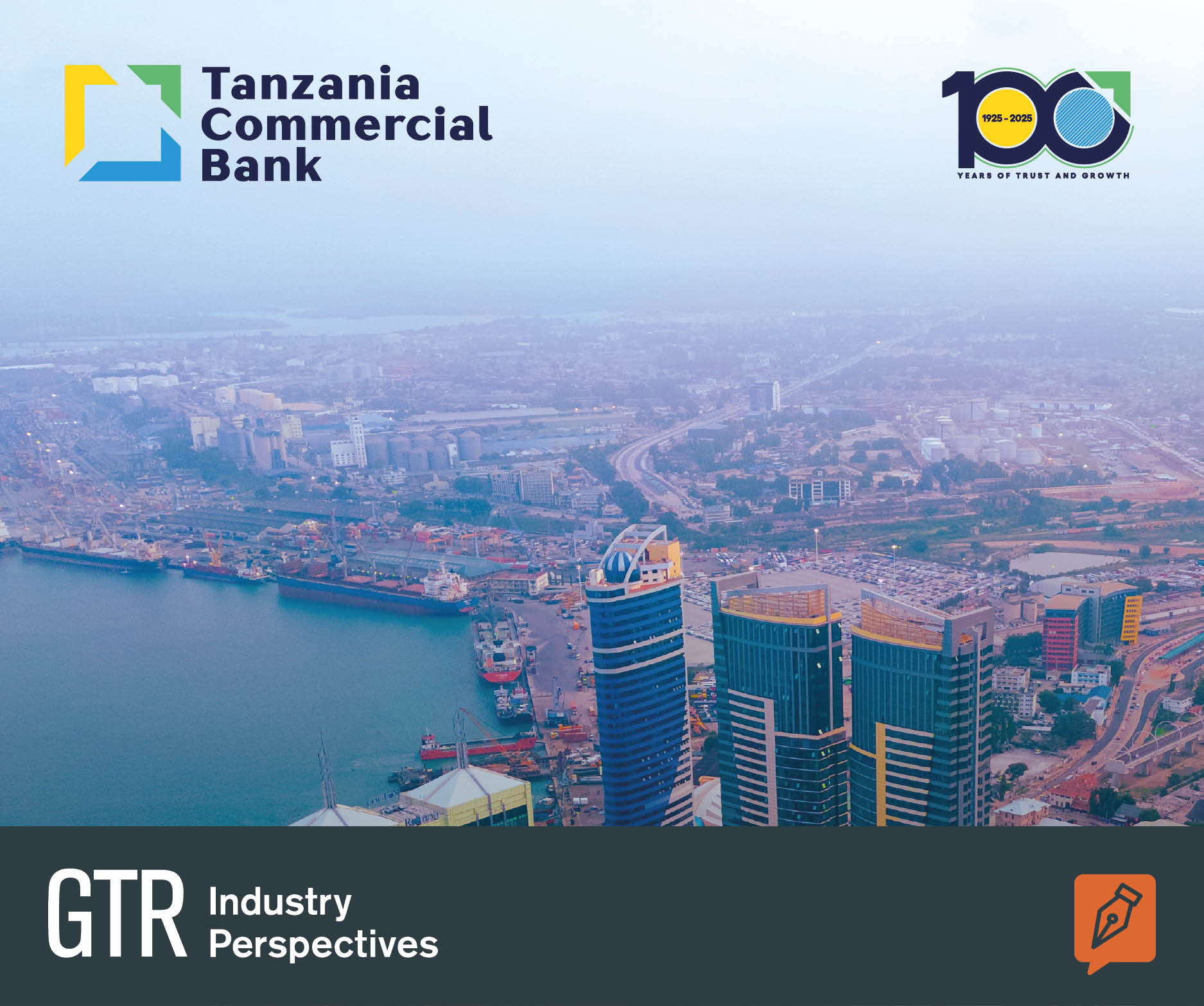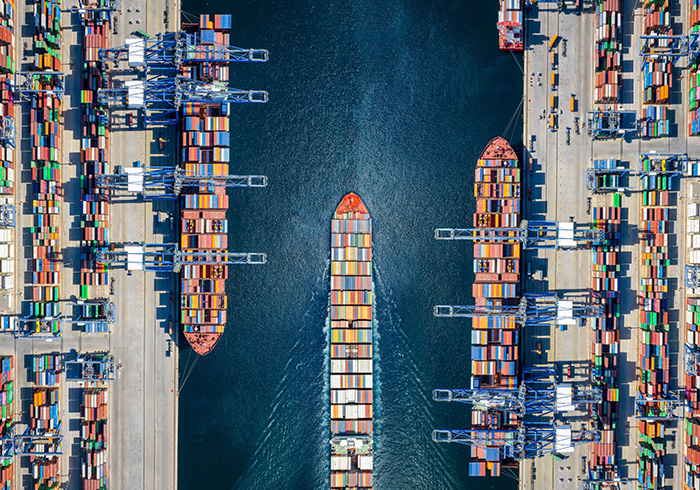The century-long history of Tanzania Commercial Bank (TCB) is characterised by transformation, and the present day is no exception. The Dar es Salaam-headquartered lender has evolved beyond its roots in retail banking and is now rapidly expanding its presence in the trade and corporate finance sector.
As a state-owned bank, TCB’s commercial success is intrinsically tied to the Tanzanian government’s strategic priorities. As a result, TCB has increased its involvement in landmark infrastructure projects, financing commodity and goods flows, and supporting the East African nation’s SMEs. TCB is now seeking to grow partnerships with other financial institutions to progress this vision further.
GTR speaks to Adam Mihayo, TCB’s managing director and CEO, and Jessica Mizambwa, chief manager, trade finance and transactional banking, about the lender’s journey to the present day, its focus on the trade finance market and its plans for the years ahead.
GTR: TCB celebrates its 100th anniversary this year. How has the bank evolved over the past century, and what role has it played in Tanzania’s economic development?
Adam Mihayo: We are marking 100 years since the establishment of the bank in 1925, during the colonial era. The purpose for the establishment of this institution was to drive saving culture. After Tanzania gained independence, the bank became part of Tanzania Post and Telecommunication Company Ltd, and underwent several changes over the years.
Since 2018, there has been a major process towards forming the bank that we have today, which is Tanzania Commercial Bank. This was achieved through the merger of four different banks. Celebrating a century of rich history, we now have a strong fully-fledged commercial bank that serves all major customer segments, including retail, small and medium-sized enterprises, and large corporations.
TCB has played a significant role in driving the country’s socio-economic development agenda. As a state-owned enterprise, we align our strategies with national priorities. We have been actively participating in a number of flagship projects.
GTR: TCB is the only fully sovereign bank in Tanzania. Why is this distinction important, and how does it shape the bank’s strategic direction?
Adam Mihayo: Currently, we are undertaking a transformation process, driven by the government’s expectation for this bank to actively contribute to the country’s socio-economic development agenda. As a result, we have engaged in various projects targeting vital sectors of the economy, such as infrastructure development, access to clean water and sanitation, and agriculture.
Additionally, right now, the country has a few banks that command more than 50% of the market share, which creates systemic risk. It is important to diversify and share these risks, which is why TCB has been assigned this mandate. Consequently, we revised our strategic plan last year to align with these objectives.
GTR: Can you tell us about a trade finance-related project TCB has financed, and how such deals position the bank as a key player in this sector?
Jessica Mizambwa: We have been actively involved in financing significant infrastructure projects that highlight our capabilities in trade finance, and a notable example is our support for the Tanzanian Standard Gauge Railway. Its first two completed phases connect Dar es Salaam to Dodoma, linking key economic and political centres. Over three years, we provided approximately US$200mn in financing, covering the entire supply chain to support contractor, subcontractors, suppliers and the project owner, Tanzania Railway Corporation (TRC).
The major tranche of financing goes to TRC, with TCB financing the importation of all rolling stock such as wagons, coaches, locomotives and the like. The second-largest tranche of financing is to the main contractor of the first two completed phases. We expect to continue supporting our client, TRC, to complete all six phases of the project.
This project financing shows our ability to deliver tailored trade finance solutions ranging across different products, such as letters of credit, bank guarantees and working capital facilities, positioning TCB as a key player in infrastructure financing and cementing our role as the main sovereign bank in the country.
GTR: Adam, you mentioned reviewing the bank’s strategic plan. How would you describe the focus now, and the rationale behind these shifts?
Adam Mihayo: We are focusing on five key areas. The first is transforming our balance sheet to better support SMEs, which represent nine out of 10 businesses in Tanzania and span key sectors like agriculture and trade.
The second is digital transformation, which is critical to improve service accessibility while reducing our costs and driving operational efficiency.
Third is brand repositioning; after over a century of history, it’s important for our customers to clearly understand the future direction of the bank.
The fourth is around risk management: to ensure long term sustainable growth, we need to significantly strengthen our risk management capabilities.
Lastly, the fifth area is on people strategy, because regardless of system, process and procedure improvements, without high morale and best practices within the top leadership team, it’s impossible to effectively integrate and execute these strategic themes.
GTR: Does this strategy also mean looking to build partnerships with other financial institutions, such as correspondent banks and development finance institutions (DFIs)?
Jessica Mizambwa: Over the past five years, TCB has shifted from primarily focusing on retail banking to actively engaging in SME and corporate banking. This transition necessitates expanding our correspondent banking network by forming partnerships with financial institutions across different markets.
Given that Tanzania is a net importer but also benefits from significant export flows, maintaining strong relationships with banks in key markets like China, the Middle East, India and parts of Europe is crucial. But also considering Tanzania’s ports serve and connect several countries, maintaining active correspondent in the East Africa region is also necessary.
Additionally, DFIs play a vital role in complementing the efforts of commercial banks, especially in facilitating trade. We understand some commercial banks can be a bit risk-averse in certain markets, particularly as we are in the growth phase. Partnering with DFIs, which have a better understanding of our markets, can help us broaden our financing solutions.
GTR: How do you see the trade finance market developing for TCB, and more widely, in Tanzania?
Adam Mihayo: Trade finance remains a key focus area for us. Tanzania’s strategic geographic position, with its ports and regional connectivity, makes it a vital hub for trade in East Africa. The country’s abundant natural resources and diverse export commodities, alongside its imports, create a strong trade ecosystem.
By actively leveraging these opportunities, we aim to facilitate smoother international trade and strengthen our market presence. We are already witnessing encouraging results reflected in our growth metrics for year 2025.







